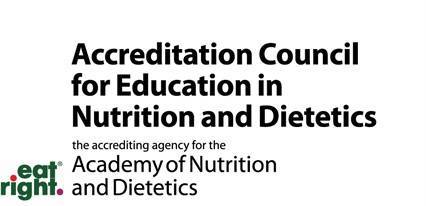Dietetics & Nutrition
Program Overview
UAA's Dietetics and Nutrition Program is a statewide education program that meets the growing needs of the dietetics and nutrition industry. This nationally accredited program trains entry-level, registered dietitian nutritionists, and community nutrition and nutrition science professionals throughout Alaska. Using an array of online and campus based courses, the UAA Dietetics and nutrition program offers a minor in Nutrition, a Bachelor of Science in Dietetics, and a Master of Science in Dietetics and Nutrition*. The BS in Dietetics and the MS in Dietetics and Nutrition are both accredited by the Accreditation Council for Education in Nutrition and Dietetics (ACEND).
*The MS in Dietetics and Nutrition program is designed to meet the educational requirements for professional licensure or certification in Alaska. However, the program might not meet the educational requirements for other states' professional licensure or certification. Please see UAA’s Licensure and Certificate website for more information.
What is a dietitian?
Registered dietitian nutritionists are healthcare professionals who provide medical nutrition therapy and consultant services in health care and wellness settings. To be successful in their field, RDN's need a strong science foundation along with courses in management, clinical and community nutrition, food science, communication, counseling, therapeutic nutrition, and nutrition for the lifespan.
Gainful Employment Disclosures optional hidden text
- Email: ACEND@eatright.org
- Phone: 1-800-877-1600, ext. 5400
- Mail: 120 South Riverside Plaza, Suite 2190, Chicago, IL 60606-6995
- Website: www.eatrightpro.org/ACEND










